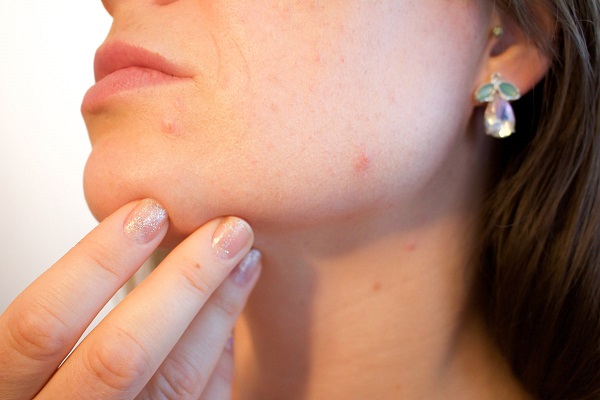EarthTalk®
From the Editors of E – The Environmental Magazine

Dear EarthTalk: I suffer from occasional acne but am loathe to treat it with harsh chemicals. Do you know of all-natural ways to get rid of pimples or prevent them altogether? — J. W., Miami, FL
Acne—when sebum from oil glands under the skin clogs pores causing small bacterial infections that lead to swelling and discomfort—isn’t just a temporary annoyance during our teenage years; it plagues many of us throughout our adult lives as well. Some 85 percent of Americans are prone to at least occasional break-outs or worse. But common over-the-counter treatments—most contain either benzoyl peroxide or salicylic acid—can irritate the skin, eyes and lungs and are also linked to more serious health problems. The U.S. Food & Drug Administration (FDA) warns that the use of these over-the-counter topicals “can cause rare but serious and potentially life-threatening allergic reactions or severe irritation.”
Most of the top-selling brands incorporate benzoyl peroxide or salicylic acid in their acne treatments, but the only way to know for sure what’s inside any given product is to consult its label. Even better, do some research online before you buy. The Environmental Working Group’s free online Skin Deep database lists ingredients—and more important, the health and environmental threats—of over 120,000 personal care products, including more than 2,000 different acne treatments now or recently available on store shelves.
As far as alternative treatments go, tea tree oil, distilled from the leaves of Australia’s Melaleuca plant, seems to be a favorite. Studies have shown it to be equally as effective as benzoyl peroxide in reducing both the number of acne lesions and their severity. Likewise, Witch Hazel has similarly positive effects for most who try it, although there hasn’t been any scientific research to back that up yet.
According to National Geographic, dabbing a pasty mixture of powdered nutmeg and honey onto a problem pimple and leaving it there for 20 minutes can help unclog pores. Another trick is to soak a chamomile tea bag in cold water, squeeze it out, then hold it onto a pimple for 30 seconds. Icing a new pimple can also help reduce swelling and discomfort and shorten its lifespan. And smearing a little milk of magnesia on your face at bedtime can help prevent break-outs to begin with.
Healthline’s Kayla McDonnell suggests dabbing zits with apple cider vinegar or witch hazel or applying a honey/cinnamon mask. Her other tips for pimple remediation include regular exfoliation, taking a zinc and/or fish oil supplement, eating a low glycemic load diet, cutting back on dairy, reducing stress and exercising regularly.
If your acne is more severe, it might be worth consulting a dermatologist who can recommend prescription-strength treatments that can work with your body chemistry to limit the production of sebum in the first place. But drying, irritation and/or other side effects can ensue from these doctor-prescribed treatments as well, so be sure to let your doctor know so he or she can adjust the dosage or treatment plan.
CONTACTS:
Skin Deep, www.ewg.org/skindeep;
FDA’s “Topical Acne Products Can Cause Dangerous Side Effects,” bit.ly/acne-risks; “
13 Powerful Home Remedies for Acne,” www.healthline.com/nutrition/13-acne-remedies;
“The efficacy of 5% topical tea tree oil gel in mild to moderate acne vulgaris: a randomized, double-blind placebo-controlled study,” www.ncbi.nlm.nih.gov/pubmed/17314442.
EarthTalk® is produced by Roddy Scheer & Doug Moss for the 501(c)3 nonprofit EarthTalk. To donate, visit www.earthtalk.org. Send questions to: question@earthtalk.org.
